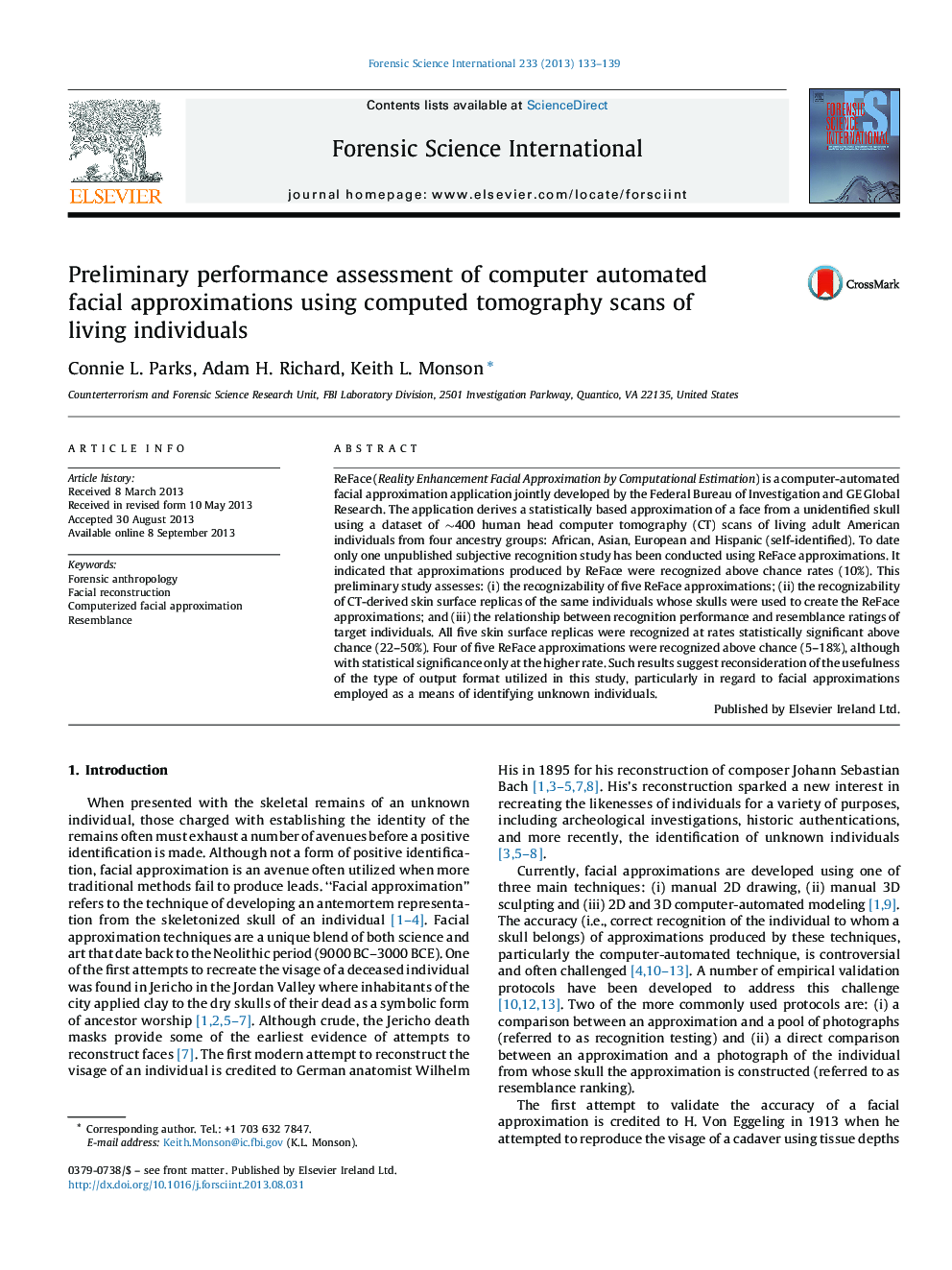| Article ID | Journal | Published Year | Pages | File Type |
|---|---|---|---|---|
| 6552727 | Forensic Science International | 2013 | 7 Pages |
Abstract
ReFace (Reality Enhancement Facial Approximation by Computational Estimation) is a computer-automated facial approximation application jointly developed by the Federal Bureau of Investigation and GE Global Research. The application derives a statistically based approximation of a face from a unidentified skull using a dataset of â¼400 human head computer tomography (CT) scans of living adult American individuals from four ancestry groups: African, Asian, European and Hispanic (self-identified). To date only one unpublished subjective recognition study has been conducted using ReFace approximations. It indicated that approximations produced by ReFace were recognized above chance rates (10%). This preliminary study assesses: (i) the recognizability of five ReFace approximations; (ii) the recognizability of CT-derived skin surface replicas of the same individuals whose skulls were used to create the ReFace approximations; and (iii) the relationship between recognition performance and resemblance ratings of target individuals. All five skin surface replicas were recognized at rates statistically significant above chance (22-50%). Four of five ReFace approximations were recognized above chance (5-18%), although with statistical significance only at the higher rate. Such results suggest reconsideration of the usefulness of the type of output format utilized in this study, particularly in regard to facial approximations employed as a means of identifying unknown individuals.
Related Topics
Physical Sciences and Engineering
Chemistry
Analytical Chemistry
Authors
Connie L. Parks, Adam H. Richard, Keith L. Monson,
